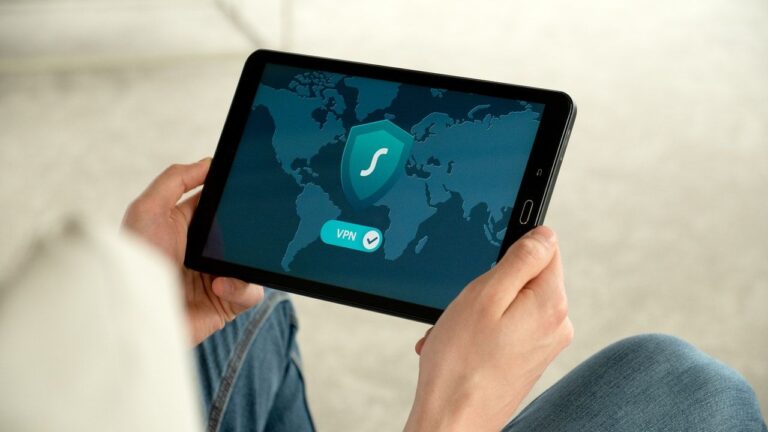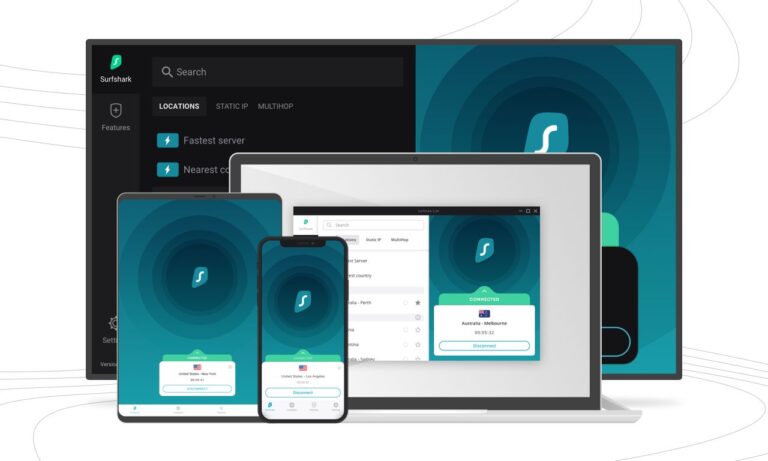In the digital age, where privacy is a growing concern, VPNs (Virtual Private Networks) have become indispensable tools for safeguarding online security. Among the multitude of features that VPN providers offer, the “VPN no logs” policy stands out as a critical component for individuals seeking to protect their online anonymity and sensitive data. In this article, we’ll dive deep into the world of VPNs and explore why a “VPN no logs” policy is an absolute necessity when choosing a VPN provider. Whether you’re a seasoned VPN user or new to the concept, understanding the significance of this policy will empower you to make informed decisions about your online privacy.

Introduction
The world of Virtual Private Networks (VPNs) is vast, and the array of choices can be overwhelming. But if there’s one feature that stands out as non-negotiable for privacy-conscious individuals, it’s a no-logs policy. In this article, we’ll explore the importance of a no-logs policy when selecting a VPN provider and delve into what this policy means for your online privacy.
What Are VPN Logs, and How Can They Be Used Against VPN Users?
Before we understand the significance of a no-logs policy, let’s clarify what VPN logs are and how they can potentially compromise your privacy.
- Capturing User IP Addresses: VPN logs may include user IP addresses, which can reveal the identity of the person behind the VPN connection. This is a significant concern for those seeking online anonymity.
- Timestamps of Connections: Logs can contain timestamps of your VPN connections. These timestamps can be used to determine when you were online, potentially linking your online activities to specific times.
- Website Visits and Browsing Habits: Some VPNs log details of websites visited, which can expose your browsing habits and preferences. This information is valuable to advertisers and potentially invasive.
- Bandwidth Usage Data: By monitoring your bandwidth usage, logs can indicate the type of online activity you engage in, whether it’s streaming, downloading, or something else.
If these logs were to fall into the wrong hands or were accessed by unauthorized entities, your online anonymity and privacy would be at risk.
Why a No-Logs Policy is a Must When Choosing a VPN Provider
A no-logs policy is a VPN provider’s commitment to not collect any information about its users. Here’s why it’s a non-negotiable feature:
- Legal Inquiries: In the event of legal inquiries or demands for user data, a VPN provider without logs has no user-specific information to surrender. This protects your privacy and anonymity.
- Traceability: Without stored logs, it becomes nearly impossible to trace online actions back to a specific user. You can surf the internet with confidence, knowing your online activities are private.
- User Trust: A transparent no-logs policy strengthens the trust between a user and the VPN provider. Users want assurance that their data is safe, and a no-logs policy provides that peace of mind.
Why Not All No-Logs Policies Are Equal
While a VPN may claim to have a “no-logs” policy, the interpretation of this policy can vary significantly from one provider to another. It’s essential to scrutinize these policies and look for independent third-party audits that validate a VPN’s commitment to not logging.
- Policy Variability: Some VPNs may not log browsing data but could retain connection timestamps. This is why not all “no-logs” claims are the same.
- Third-Party Audits: Independent third-party audits, such as those conducted by PwC, validate and verify a VPN’s commitment to not logging. Without such verification, a VPN’s “no-logs” claim may be more of a marketing tactic than a privacy assurance.
- NordVPN’s Example: For instance, NordVPN, a renowned VPN provider, has undergone three independent no-logs audits, with the latest one conducted in 2022 by Deloitte, an industry-leading Big Four auditing firm. This level of transparency and scrutiny assures users of their privacy.
How to Choose a Safe VPN Provider
Choosing the right VPN provider is crucial for your online privacy and security. Here are some factors to consider:
- Research the VPN’s Reputation: Look for user reviews and expert analyses to gauge a VPN’s trustworthiness and performance.
- Verify No-Logs Claims: Ensure the VPN has a strict no-logs policy and has preferably undergone independent third-party audits to confirm its veracity.
- Evaluate Encryption Standards: A reputable VPN should employ high-grade encryption protocols, such as OpenVPN or WireGuard, to protect user data.
- Check the Number of Servers and Locations: A wider network of servers across multiple countries allows for better speed, reliability, and geo-unblocking capabilities.
- Assess Speed and Performance: No one wants a slow VPN; choose a provider known for fast and stable connections.
- Consider the Pricing Model: Look for transparent pricing, money-back guarantees, and potential trial periods to assess the VPN’s value for money.
- Support and Usability: A user-friendly interface and responsive customer support can greatly enhance the VPN experience.
Suggested NordVPN Review Section
If you’re looking for a reliable VPN provider that adheres to a strict no-logs policy, consider NordVPN:
- Security: NordVPN uses Advanced Encryption Standard (AES) with 256-bit keys, rendering brute-force attacks useless, ensuring your data remains secure.
- Protocols: NordVPN offers OpenVPN, IKEv2/IPsec, and NordLynx (an adaptation of WireGuard) protocols.
- Server Network: NordVPN boasts over 5000 servers in 60 locations across the Americas, Europe, Africa, and Asia-Pacific regions, ensuring fast and reliable connections.
- Customer Support: NordVPN provides 24/7 customer support, ensuring you have assistance when you need it.
- No-Logs Policy: NordVPN is a three-times audited no-logs service, with its latest audit conducted by Deloitte in 2022. Your online activities remain confidential and your devices risk-free.
- Specialty Servers: NordVPN offers Specialty Servers, including Dedicated IP, Onion over VPN, Double VPN, Obfuscated servers, P2P, and Threat Protection.
- Threat Protection: This feature provides an additional layer of security by blocking malicious websites, ads, and trackers, as well as identifying files infected with malware.
Protect Your Privacy with NordVPN
When it comes to choosing a VPN provider that truly values your privacy, NordVPN is a top choice. Their stringent “no logs” policy has been independently audited, ensuring that your online activities remain confidential and secure. With a vast network of servers worldwide, NordVPN offers lightning-fast connections, further enhancing your online experience. Additionally, they provide a range of specialty servers for added security, such as Double VPN and Onion over VPN. Protect your data and online identity by choosing NordVPN as your trusted companion in the digital world.
Enhance Your Online Security
In addition to a robust VPN, consider other security tools to fortify your online defenses. NordPass and NordLocker are exceptional options for managing your passwords and safeguarding your files with advanced encryption, respectively. For those who seek alternatives, PotatoVPN, AtlasVPN, Surfshark, and PrivadoVPN offer varying features to cater to your unique online security needs. Strengthen your digital armor and protect your privacy with these comprehensive solutions.
Conclusion
In conclusion, a no-logs policy is a fundamental feature when selecting a VPN provider. It ensures your online activities remain private and secure, protecting your online identity. However, not all no-logs policies are the same, so thorough research and verification are essential. Providers like NordVPN, with their rigorous auditing and robust security features, can be an excellent choice for privacy-conscious users.






